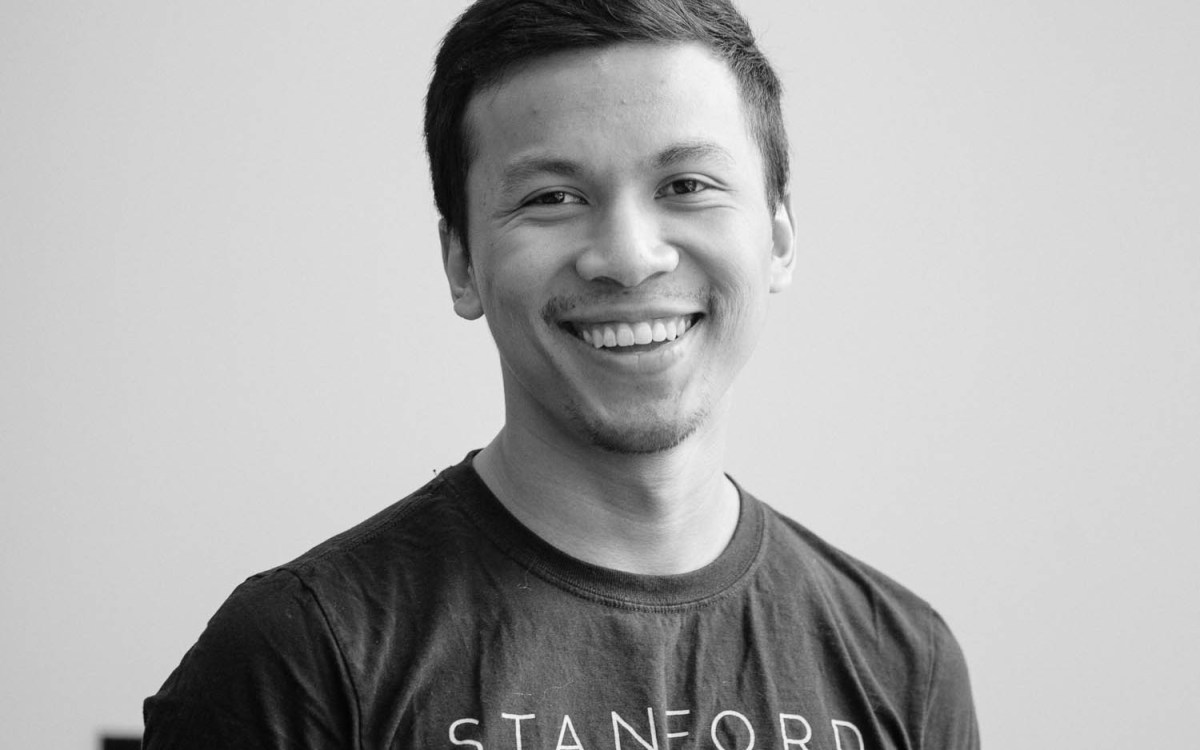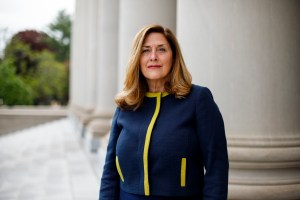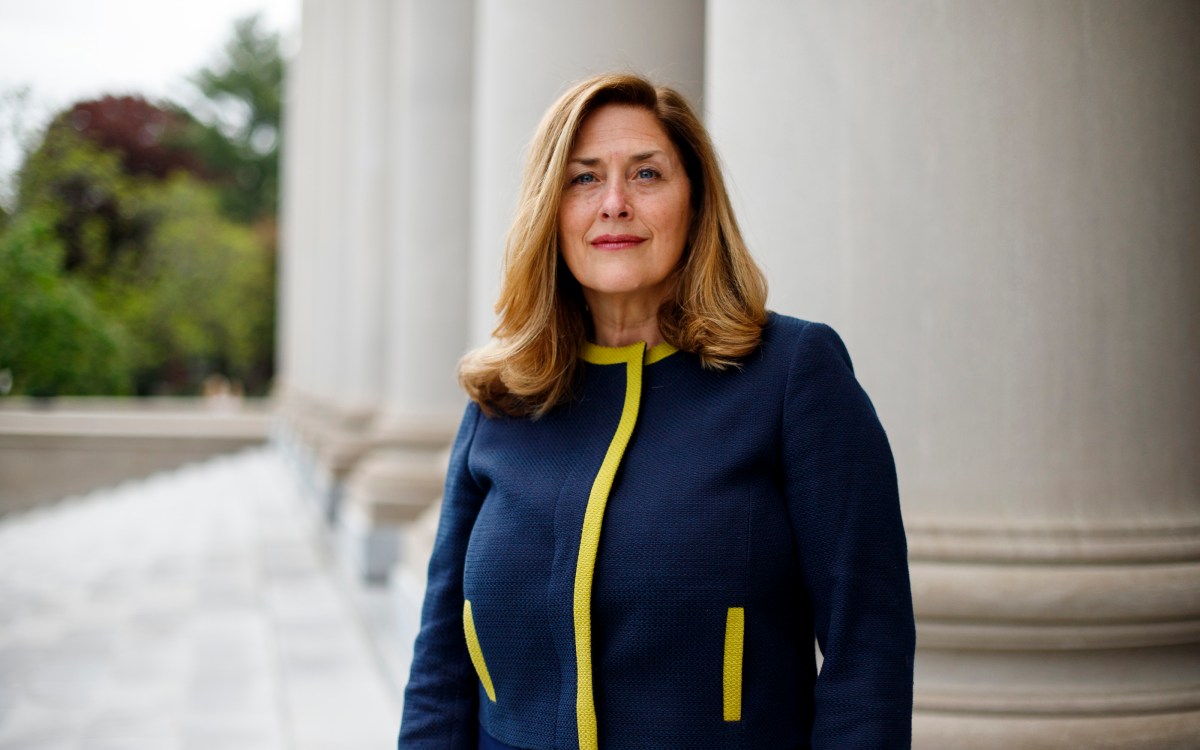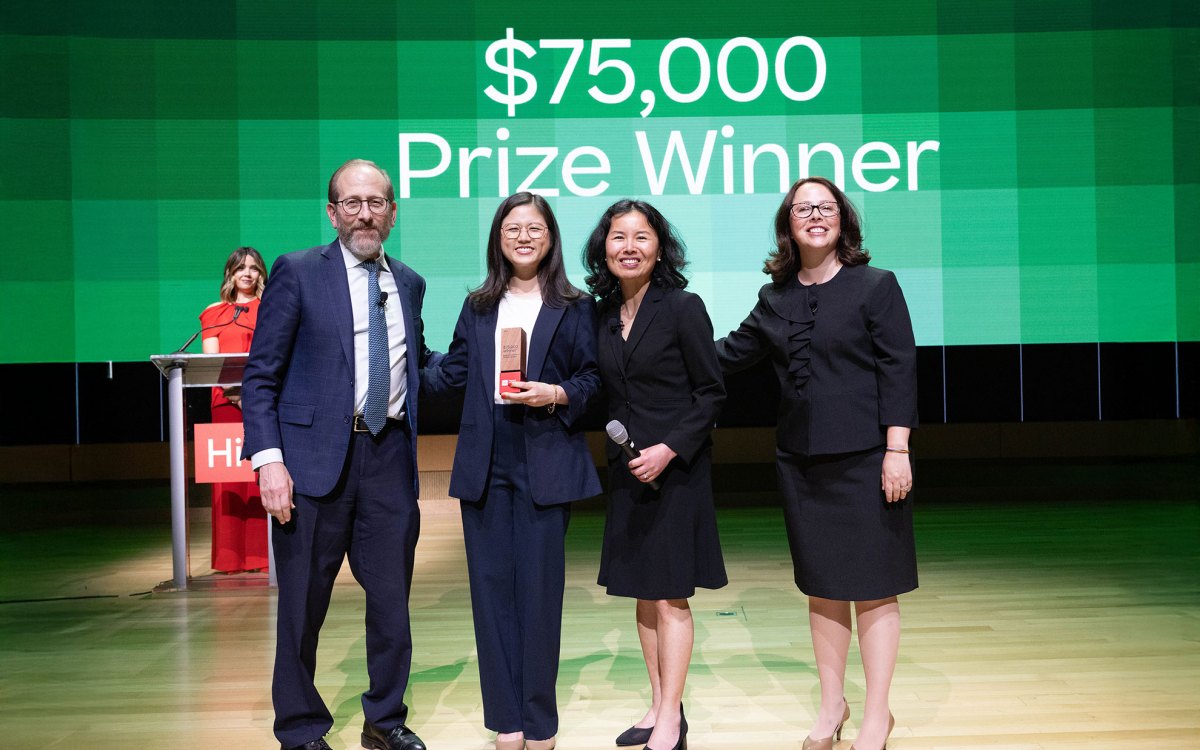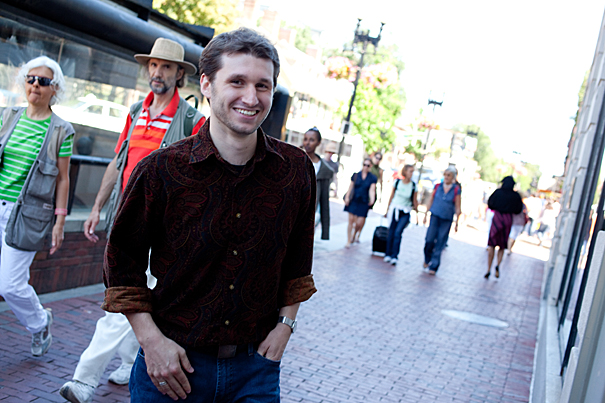
When Ron Spalletta’s poem “Blank Villanelle” was chosen by Robert Pinsky for Slate magazine, Spalletta told his Harvard Medical School supervisor he had to leave for a minute. “I went outside and called all my friends and family,” he says. “I called everyone.”
Rose Lincoln/Harvard Staff Photographer
Hard science, soft verse
Ron Spalletta manages medical unit by day, pens poetry by night
When Ron Spalletta’s projects ended at the Harvard School of Public Health (HSPH), the temporarily unemployed Spalletta taught himself how to play trumpet.
“I used to practice at night by Jamaica Pond,” he said. “The geese would get angry sometimes.”
If this seems remarkable, even strange, consider this: Spalletta is no trained musician, but a poet — who happens to love biology.
“It always made sense to me,” said Spalletta, who, while majoring in English literature at the University of Scranton, worked in a molecular biology lab.
At HSPH, Spalletta was a research assistant working on tobacco control. He left in April 2008 but returned that September as an academic and administrative coordinator for HSPH’s Department of Genetics and Complex Diseases. Though that would seem an odd home for a poet, Spalletta integrated his literary passion into the workflow by posting a poem a day outside his office.
“Poetry is a subjective way to understand the world,” Spalletta said. “But biology is its complement. It gives a grounding, objective understanding.”
While at HSPH, Spalletta, a Pennsylvania native, also attended Emerson College, earning an M.F.A. in poetry. Now a manager at Harvard Medical School, where he oversees clerkships for third-year medical students, Spalletta has recently experienced the joy of his first publication.
Spalletta’s poem “Blank Villanelle,” published last month at Slate magazine, was selected by Robert Pinsky, the former U.S poet laureate and Slate’s poetry editor.
Spalletta discovered poetry “at a summer program for kids who were not really athletic,” he recalled. It was for brainy seventh- and eighth-graders, yet when Spalletta laid eyes on “To an Athlete Dying Young” by A.E. Housman, he said, “it was completely opaque.”
Once his teacher began discussions on the poem, and its meaning became clearer to Spalletta, “I felt like a whole other world had opened up.”
“It was as though I had read English all my life but was suddenly shown the Secret English,” he said. “From that moment, I was hooked.”
But then high school arrived, in all its melodramatic glory, and Spalletta’s poetry followed suit.
“It was terrible,” he said. “I was so heavily influenced by Edgar Allen Poe that I was a little goth nightmare.”
Now Spalletta is at work on a chapbook-length collection, and was recently named a finalist for an artist fellowship from the Massachusetts Cultural Council. This fall he’ll be teaching two communications courses at the New England Institute of Art, in addition to participating in weekly poetry workshops with a pack of Emerson alums.
Spalletta said that when he received the e-mail from Slate that his poem was to be published, he told his supervisor he had to leave for a minute.
“I went outside and called all my friends and family,” he said. “I called everyone.”
Whether he’s trumpeting, writing, studying biology, or photographing (he does freelance work, and last year traveled to Jordan with the Boston Children’s Chorus), Spalletta knows he’s lucky.
“I owe a great deal to having many exceptional teachers.”
